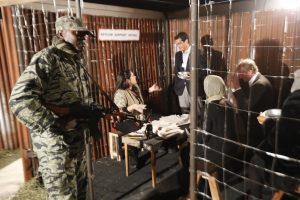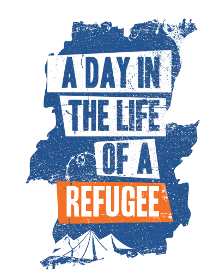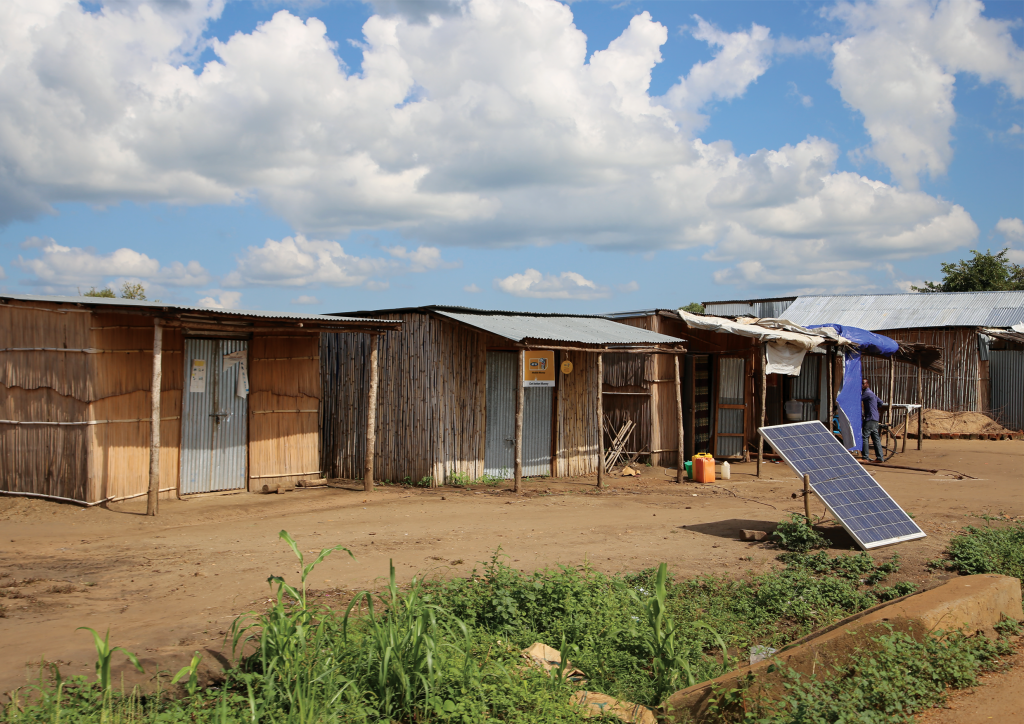A needless tragedy took place mid 2017, one which left a legacy to see others safeguarded.
Little Peter Okello, just 14 days old, was admitted to a medical clinic for pneumonia. Born at 4.9 kilos, he was a more than strong baby boy. There was every reason to believe he would be a child of robust health. Peter was born, however, in the post conflict zone of Northern Uganda where infrastructure remains weak.
The clinic put little Peter on oxygen and he began to breathe easily. Then, however, the electricity failed: not an uncommon pattern in this region which was devastated by a twenty year conflict.
Staff ran to find a generator, but it was an old one and took minutes to spark into life. Those minutes saw Peter give way to death.

David Livingstone Okello as an armed soldier in ‘A Day in the Life of a Refugee’ simulation.
His father, David, a cast member in our programme, is no stranger to loss. He was violently abducted as a child solder in his youth and has served his people in their deep struggle back to a normal life. The death of this little one, however, brought the pain of loss alive again for him in a heartbreaking way. His response: “I want there to be a way that other families can be spared this deep pain, a way to stop it repeating. The power outages will continue, but these tragic deaths shouldn’t.”
The answer, given the area’s erratic electricity supply, is solar. So ‘The Peter Project’ was born. Could a solar system be installed to protect others in this area where medical care can be precarious?
During the World Economic Forum in 2018, a participant in ‘A Day in the Life of a Refugee’ responded. He donated the wherewithal for a solar system to be installed in this clinic so that, no matter how unreliable the electric power supply may be, lives can be protected.


